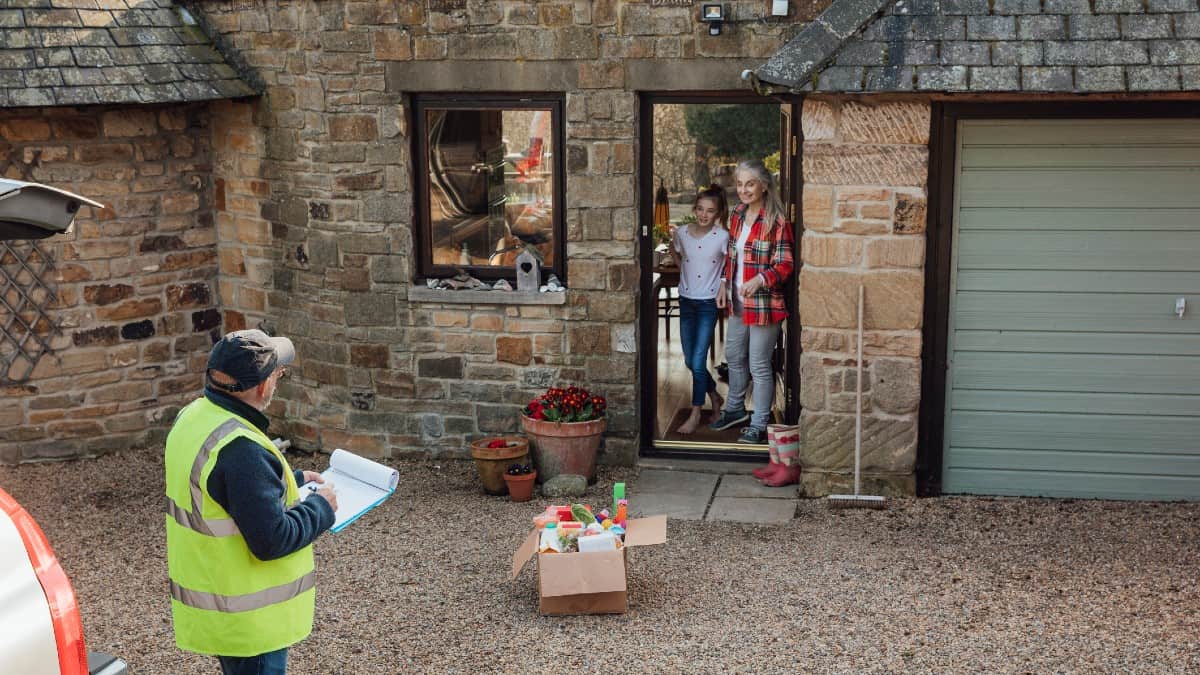Over the past three years, the Ocado (LSE:OCDO) share price has fallen by 72%. This makes it the worst performing stock in the FTSE 100. However, in June 2023, it soared by 50%, beating all others in the index.
The apparent reversal of fortunes came after a report surfaced on 22 June 2023 of a possible takeover bid from Amazon. Its shares closed 32% higher that day, at 568p.
But with The Times reporting that the suitor was willing to pay up to 800p a share, it appears many investors remain unconvinced that a deal will be concluded.
Should you invest £1,000 in Ocado right now?
When investing expert Mark Rogers has a stock tip, it can pay to listen. After all, the flagship Motley Fool Share Advisor newsletter he has run for nearly a decade has provided thousands of paying members with top stock recommendations from the UK and US markets. And right now, Mark thinks there are 6 standout stocks that investors should consider buying. Want to see if Ocado made the list?
Over the years, I’ve struggled to understand why anyone would want to own a stake in Ocado. For the year ended 27 November 2022, it made a loss before tax of £501m.
But if one of the world’s most valuable companies is interested, have I missed something?
Justification
Amazon is apparently keen to expand its presence in the UK supermarket sector.
It first entered the market in 2021, and now operates a chain of 20 ‘Just Walk Out’ Fresh stores in London.
Amazon’s market cap is over 240 times’ higher than that of Ocado. It would therefore be a relatively small transaction. Even if it failed, it wouldn’t materially impact its operations.
Bean counting
In its latest trading update, Ocado said it would have “marginally positive” EBITDA (earnings before interest, tax, depreciation, and amortisation) for its 2023 financial year, skewed towards the second half.
This would be an improvement on 2022 when EBITDA was in fact a loss of £74m.
But this measure of profitability ignores depreciation, amortisation, and interest, which are important.
Ocado considers itself to be a technology company rather than a retailer. That’s why it has a lot of tangible and intangible (non-physical) assets on its balance sheet. These are written off over their useful lives by including a charge in its accounts.
Although this hit to profitability is a non-cash item, it reflects the fact that many of the assets will need to be replaced or refurbished at some point.
And because it’s loss-making, it’s only been able to buy these assets by borrowing. At 27 November 2022, it had £1.37bn of debt, giving rise to an interest charge of £90m for the year.
That’s why there’s such a disparity between last year’s EBITDA and its loss before tax. And this is likely to continue for the foreseeable future.
To illustrate this, for the company to have recorded a break-even result (before tax) last year, it would have needed revenue to be 52% higher.
For Q1 2023, revenue was up ‘only’ 3.4%, compared to the same period in 2022. The company clearly has a long way to go before it’s profitable on all measures.
However, I acknowledge that the number of orders, active customers, and average selling price increased during the first quarter.
What next?
I remain sceptical about Ocado. In its first 23 years of existence, it’s successfully grown its top line but seemingly forgotten about the need to be profitable.
Unless Amazon confirms the bid rumours and/or the company starts recording a healthy profit before tax, I believe its share price will start to fall again.
And in this scenario — without a dividend — I see little point in owning shares in the company.








